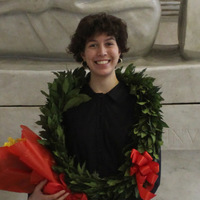Exactly fifty years ago Christoph Schäublin’s pioneering study on Antiochian exegetical literature, with its extensive parallels to pagan grammarians and scholastic tradition, shed new light on the contribution of authors such as John...
moreExactly fifty years ago Christoph Schäublin’s pioneering study on Antiochian exegetical literature, with its extensive parallels to pagan grammarians and scholastic tradition, shed new light on the contribution of authors such as John Chrysostom, Diodore of Tarsus, and Theodore of Mopsuestia to the history of the biblical canon and its exegesis, with insights stretching into late-antique Christological controversies and the history of Christianity more broadly.
Despite Schäublin’s work, Antiochian authors continued to be underrated or simplistically categorized as literalist exegetes and are typically cast in opposition to Alexandrian models. But recent investigations suggest that Antiochian impact on educational systems and even on political programs deserves to be analyzed in a way that highlights its autonomous dimension and importance, as well as its historical outcome stretching up to Byzantine heresiological traditions.
This workshop aims therefore to collect new perspectives on Antiochian biblical exegesis and its role in shaping Christian identity through the centuries: the first part is devoted to highlighting different aspects of the Antiochian exegesis and its reception from the 3rd to the 12th century; the second focuses instead on Theodoret of Cyrus’ exegesis of the Old Testament, with particular regard of the Psalter - exegesis which synthesized many grammatical and theological traditions witnessed in earlier authors. Given its historical success – if its use as the nucleus to many Psalter catenae is any standard by which to judge – this workshop will feature Theodoret’s Psalter commentary, with several contributions dedicated to it specifically
